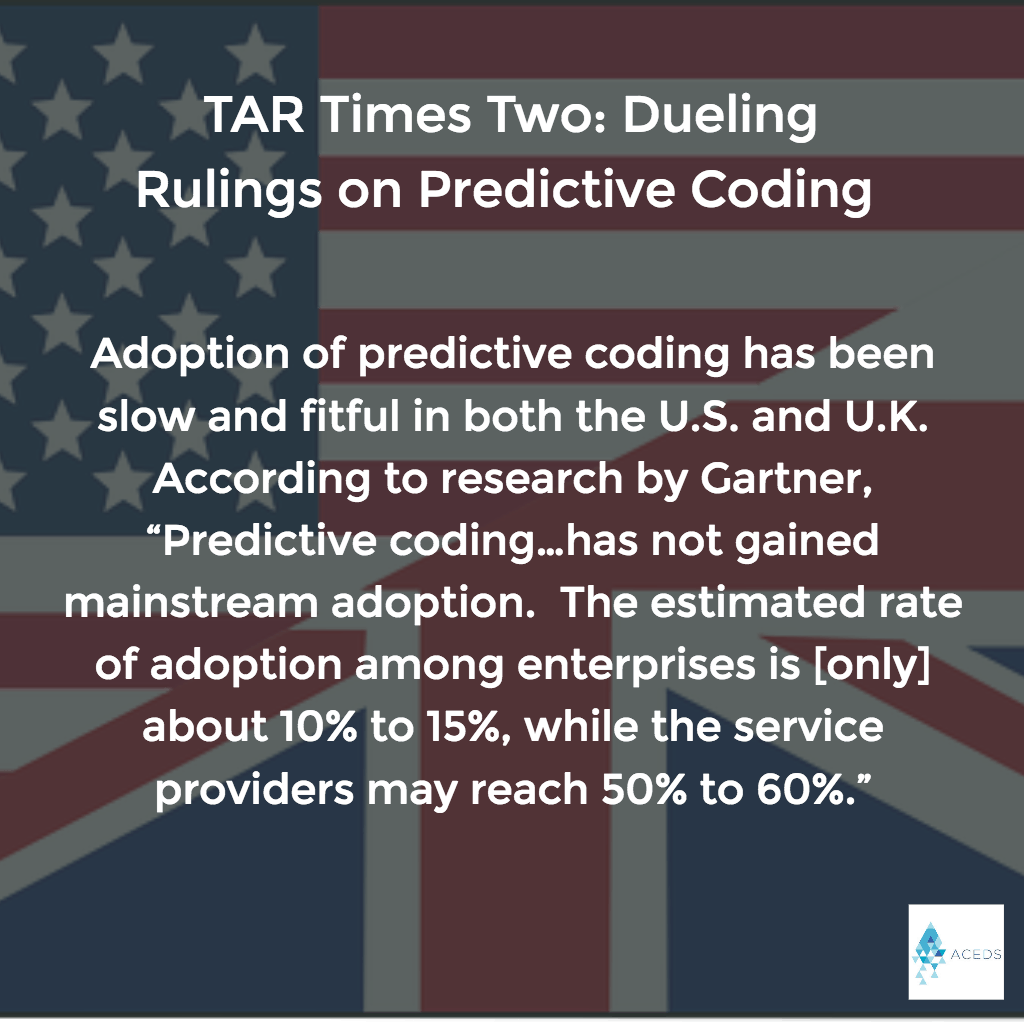ARCHIVED CONTENT
You are viewing ARCHIVED CONTENT released online between 1 April 2010 and 24 August 2018 or content that has been selectively archived and is no longer active. Content in this archive is NOT UPDATED, and links may not function.Extract from article by Jason Krause
Two Legal Systems Separated by a Common Language
Maura Grossman is a Research Professor at the University of Waterloo, as well as an e-discovery attorney and consultant in New York City. She says that though U.S. courts and U.K. courts differ in the level of detail and analysis applied to the question of using predictive coding in litigation, the conclusions reached are very similar.
In particular, she points out that the UK court in Pyrrho Investments developed a ten factor test to determine if predictive coding is an appropriate tool. This test would likely be familiar to many U.S. attorneys, as it relies on the same underlying principles as are found in the United States’ Federal Rules of Civil Procedure. “While the factors outlined refer to the specifics of the cases at hand, as well the specifics of U.K. law, they implicate the same principles of reasonableness and proportionality that also apply in common law jurisdictions, including the United States,” says Grossman.
In fact, judges in the UK may have an easier time imposing predictive coding protocols in a matter. Writing on his blog, UK attorney and e-discovery expert Chris Dale points out that judges there are encouraged to actively manage cases and control costs, especially since the loser pays the winner’s costs in English Courts. He argues that in Hyles, the Sedona Principles were an impediment to sensible case management, which can include advanced search technology. “If Sedona Principle 6 is standing in the way, perhaps it is time for a more nuanced version, especially since last year’s FRCP amendments gave more early case management powers to the court,” he writes.
Read the complete article at TAR Times Two: Dueling Rulings on Predictive Coding






















